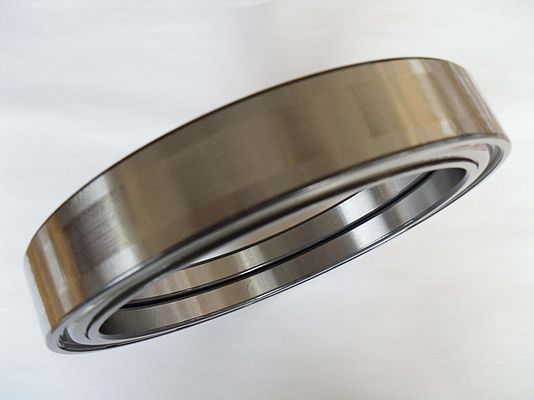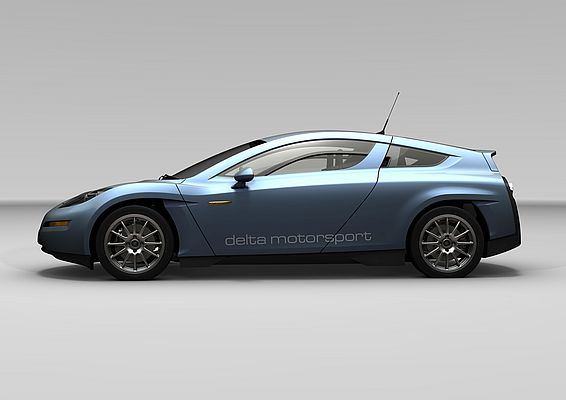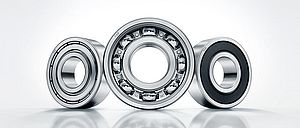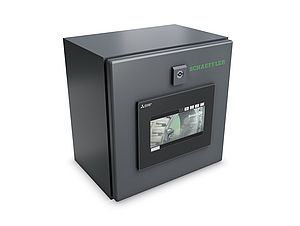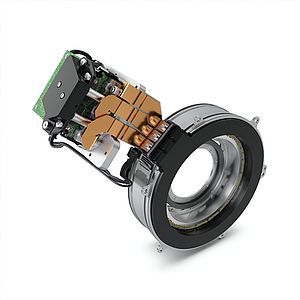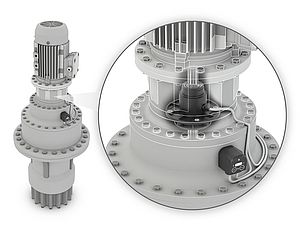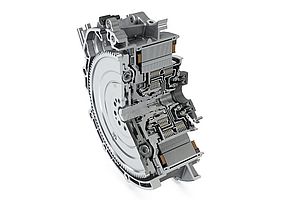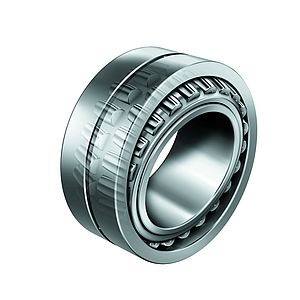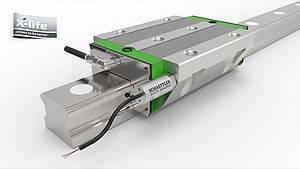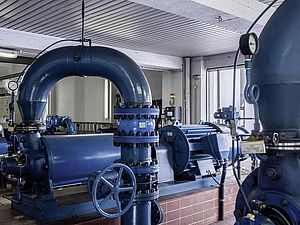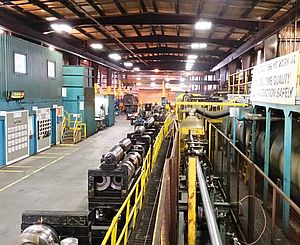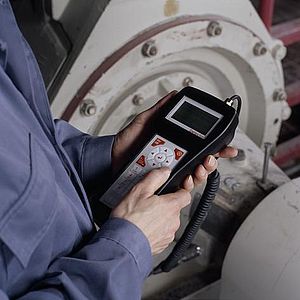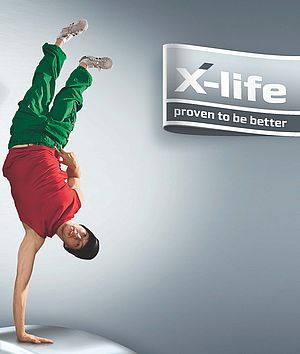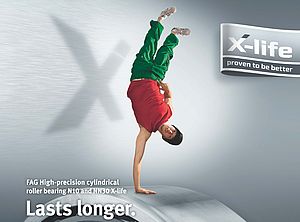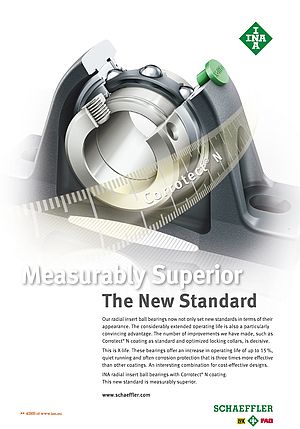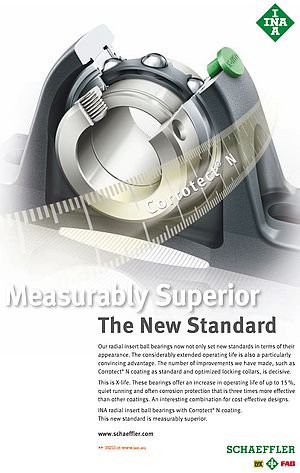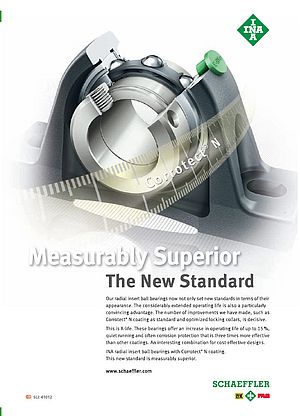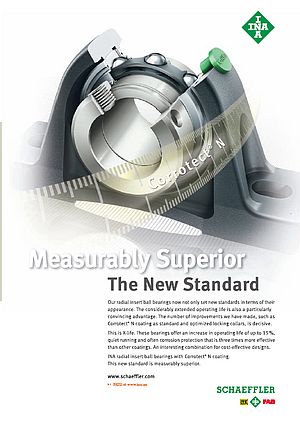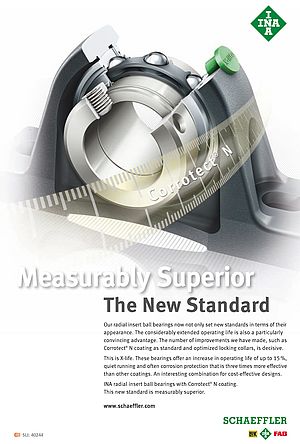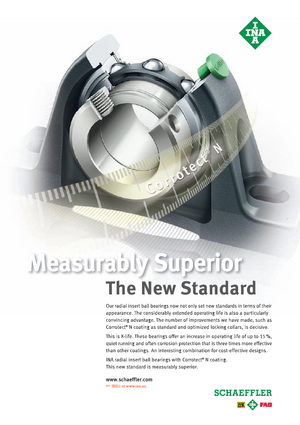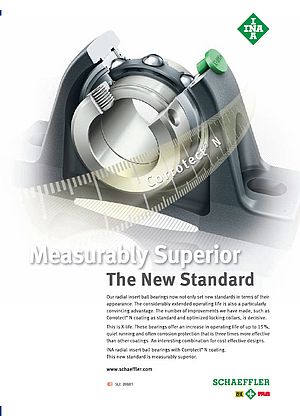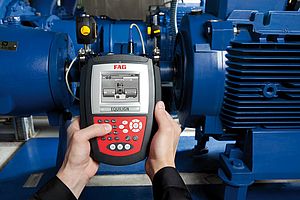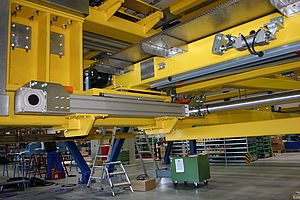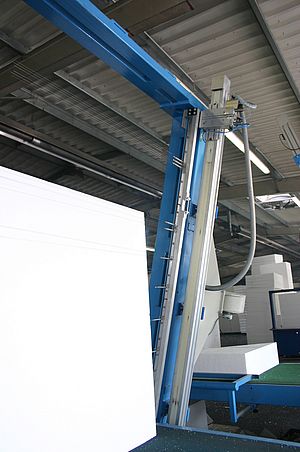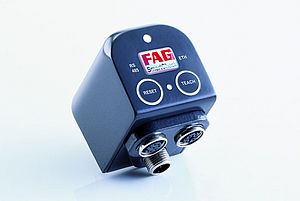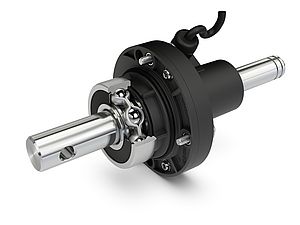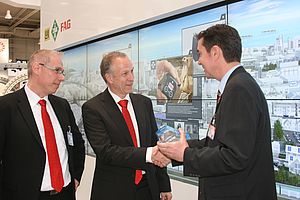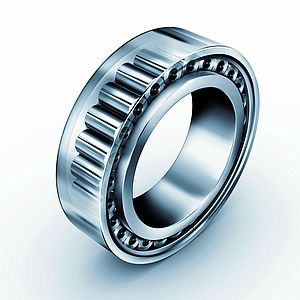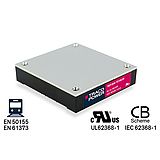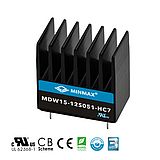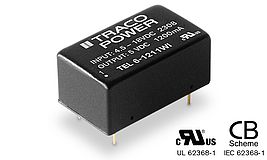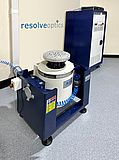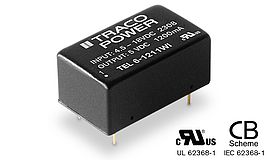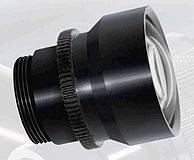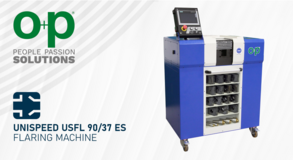Innovative hybrid bearing technology has enabled engineering consultancy and electric vehicle manufacturer, Delta Motorsport, to design and build from scratch an all-electric road car.
The Delta E-4 Coupe is a stylish 4-seater, 2 door coupe that boasts a class-leading range of more than 200 miles on a single charge. The vehicle can accommodate four adults, but the acceleration is comparable to a Porsche 911 Turbo. It is capable of 0-60mph in less than 5 seconds and a top speed in excess of 150mph.
The key to the E-4 Coupe's impressive performance is the high performance direct-drive electric motor that powers the car. Designed in partnership with Oxford University and Oxford Yasa Motors to meet Delta Motorsport's performance requirements, the new design of axial-flux electric motor generates well over 600Nm of torque while only weighing 23kg.
“The bearings were absolutely critical to enabling the modular design of the Yokeless and Segmented Armature [YASA] motor that we helped to design with Oxford," says Nick Carpenter, Technical Director at Delta Motorsport. "Ultra Low Energy Vehicles such as the E-4 Coupe rely on lightweight components to compensate for the inherent problem of the low energy density of lithium batteries when compared to gasoline. When I first came up with the idea of the new bearing arrangement that would help to optimise the space available for the stator while accurately controlling the air gap to the rotors, I almost dismissed it due to the fact that standard bearings would have been too big and too heavy. However, following detailed discussions with Schaeffler UK, the company’s engineers were able to offer a special design of hybrid double-row angular contact ball bearing, which has a split inner ring that was able to meet the demanding criteria of reduced weight and cross-section."
This was the breakthrough that Delta Motorsport needed if the Company was to fulfil its ambition of developing a highly-efficient plug-in battery electric 'car for the people’ that is both stylish in its design and financially viable but also capable of overcoming the 'range anxiety' perceived by many purchasers of all-electric vehicles.
As Stewart Davies, Senior Applications Engineer at Schaeffler UK recalls: “It was a very interesting project to work on with very demanding criteria to meet. The challenge was to keep the bearing as narrow as possible in order to meet the dimensional constraints of the design envelope inside the YASA motor, whilst at the same time offering a commercially viable bearing solution within a very tight timescale.”
Davies continues: “The initial bearing design concept proved to be too expensive and threatened to jeopardise the project. Following intensive design calculations, we were able to offer a single hybrid bearing that met the key design criteria of high performance, reliability and ease of assembly but that could also be competitively produced in volume.”
One of the problems encountered by the design team was the high seal lip speed. With the bearing rotating at such high speeds, all calculations indicated that the seal would wear out and that the bearing would fail prematurely. By specifying a non-contact shield, this problem was solved. Another advantage of using a non-contact shield is the increased life expectancy of the grease. According to Davies “a hybrid bearing has all the insulation qualities required for use in electric motors, including low friction, but the non-contact shield has doubled the life expectancy of the grease which has further enhanced the performance of the bearing.”
Dr Tim Woolmer, whose DPhil at Oxford University, led to the creation of the YASA motor added: “The partnership with Delta and Schaeffler helped us to create performance prototypes of the motors very quickly. The design has proven to be so robust at high torque and high speed conditions that Oxford YASA Motors have adopted it as part of the next generation design being finalised for higher volume production.”
Delta Motorsport is used to overcoming many challenging engineering problems, having been involved in a wide variety of concept, design and prototype project work ranging from sports cars and motorcycle safety products, to hybrid and battery electric vehicles. It is the company’s work in top level motor sport – where vehicle weight, aerodynamics and mechanical efficiency are key success factors – that has enabled Delta to optimise the performance and handling of the E-4 Coupe.
"Problem solving is in our DNA," states Carpenter. "However, designing a road car is a very different challenge to designing a racing car. It’s not that any one task is particularly complex but simply the sheer number of challenges involved, from keeping the water out to making sure the car handles well.”
Delta Motorsport is keen to focus on reducing all cars' energy consumption and makes a clear distinction between low emissions and low energy vehicles. Simply converting a high performance car to batteries would turn it into a low emissions vehicle but would not necessarily reduce energy consumption.
Carpenter's enthusiasm for the E-4 Coupe and the future of sustainable vehicle technology is inspirational. "We have learnt so much just by rolling our sleeves up and having a go. With the motorsport industry firmly based in the UK, the culture of innovation is our breeding. There is a great opportunity in this sector for UK plc, and Delta is looking forward to taking this 'Philosophy Transfer' to the next stage."
The company’s sights are also set on record attempts such as the electric land speed record (currently just over 300mph), and ultimately the 'Holy Grail' is to be the first wheel-driven car over 500mph.
"Schaeffler's bearing know-how has been an enabling factor in Delta developing this class-leading product. We wouldn't be where we are now without it," concludes Carpenter.


